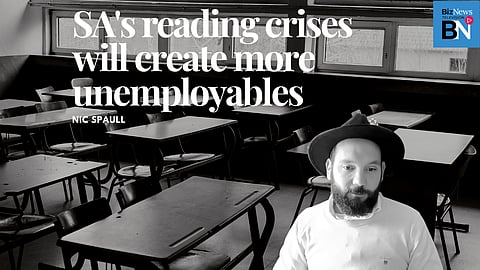Interviews
A generational catastrophe: 81% of Gr4 learners in South Africa can’t read for meaning
81% of Gr4 learners in SA could not read for meaning in any language in 2021 - and SA had the largest decline in reading outcomes.
81% of Gr4 learners in South Africa could not read for meaning in any language in 2021 – and South Africa experienced the largest decline in reading outcomes (-31 points) of all 33 countries/regions with data in 2016 and 2021. Professor Nic Spaull of the Economics Department at Stellenbosch University shares these and other findings in the latest "Progress in International Reading Literacy Study". He discusses the causes and the long-term implications with BizNews.
Watch here
Listen here

